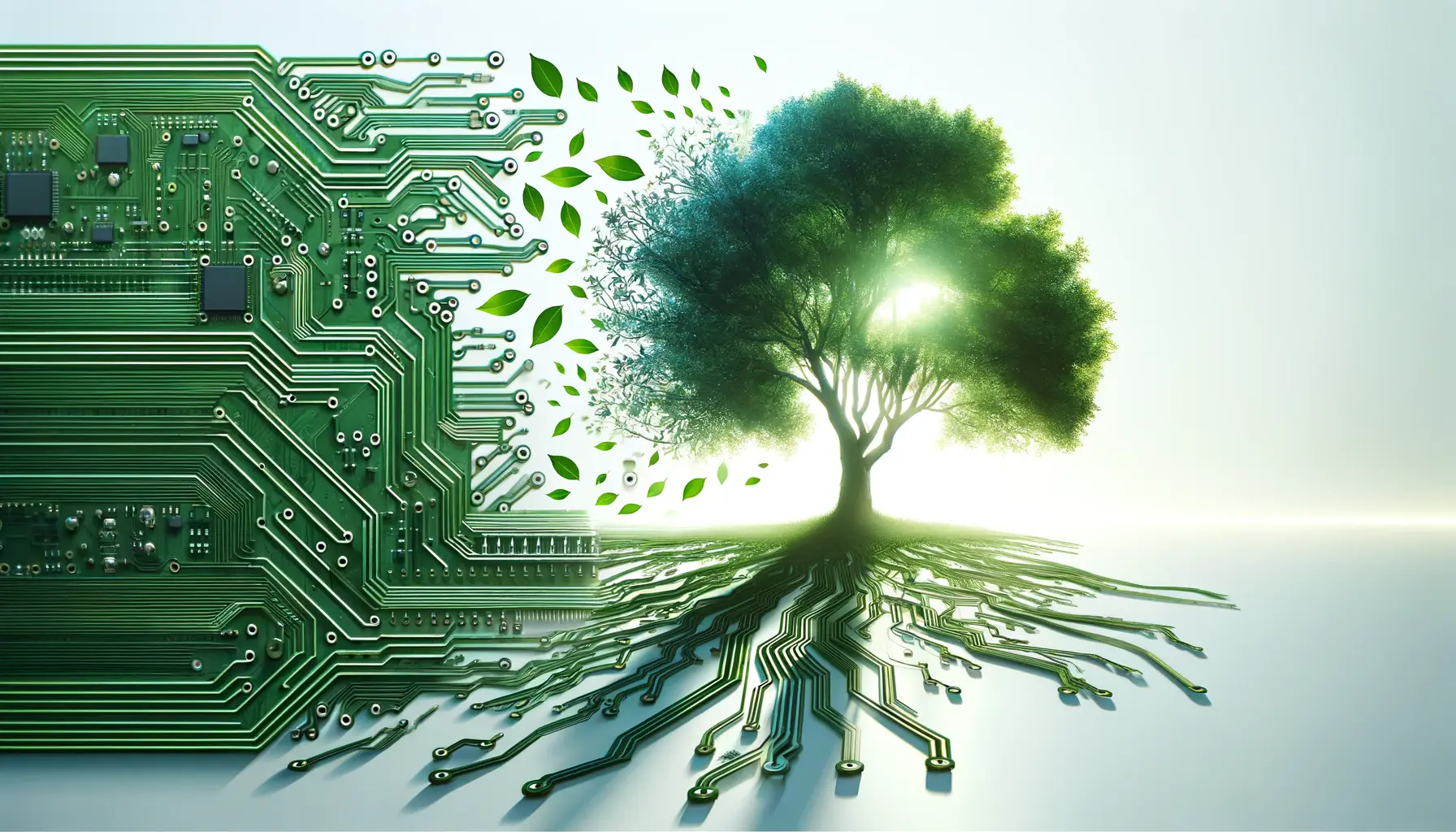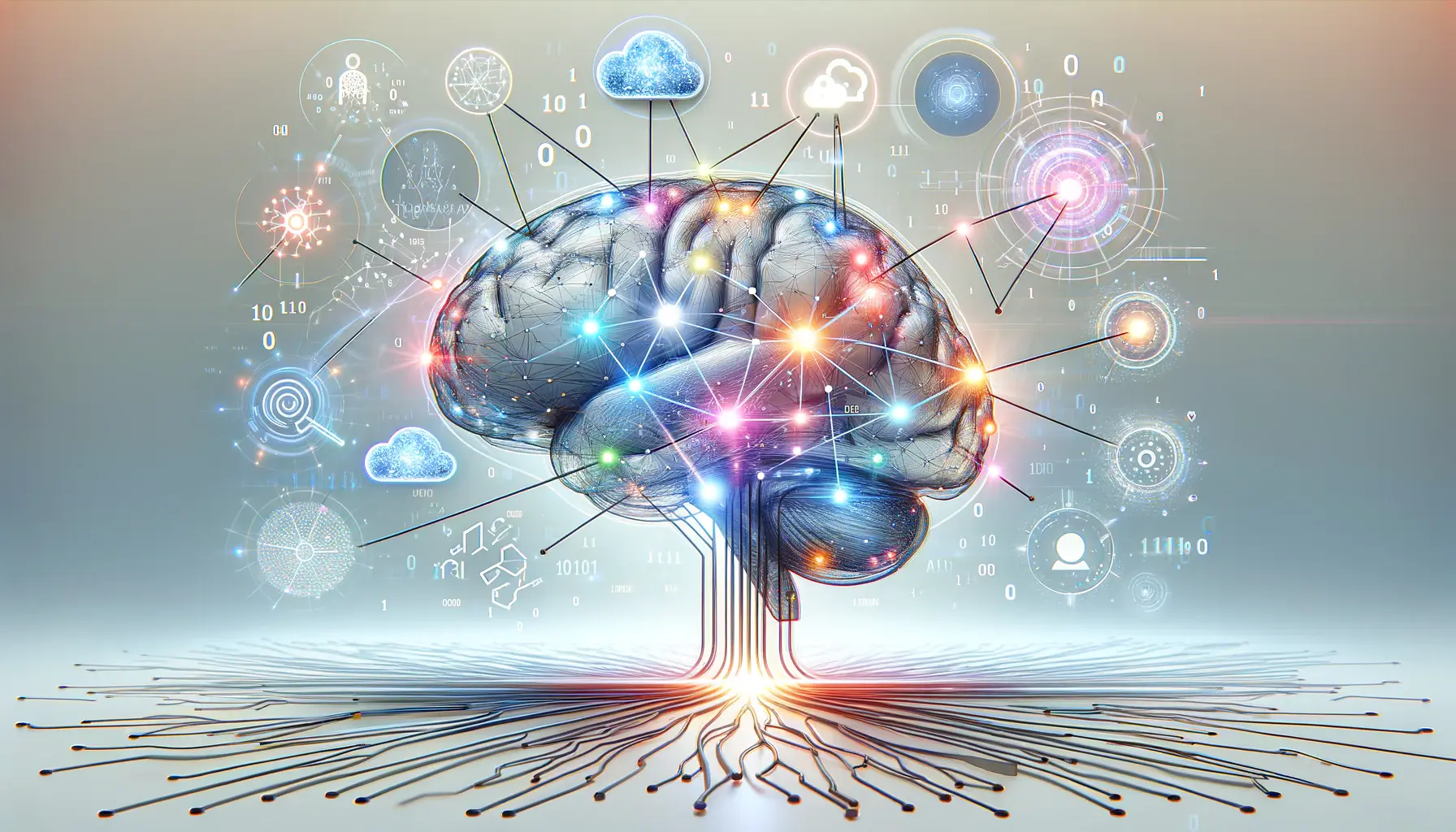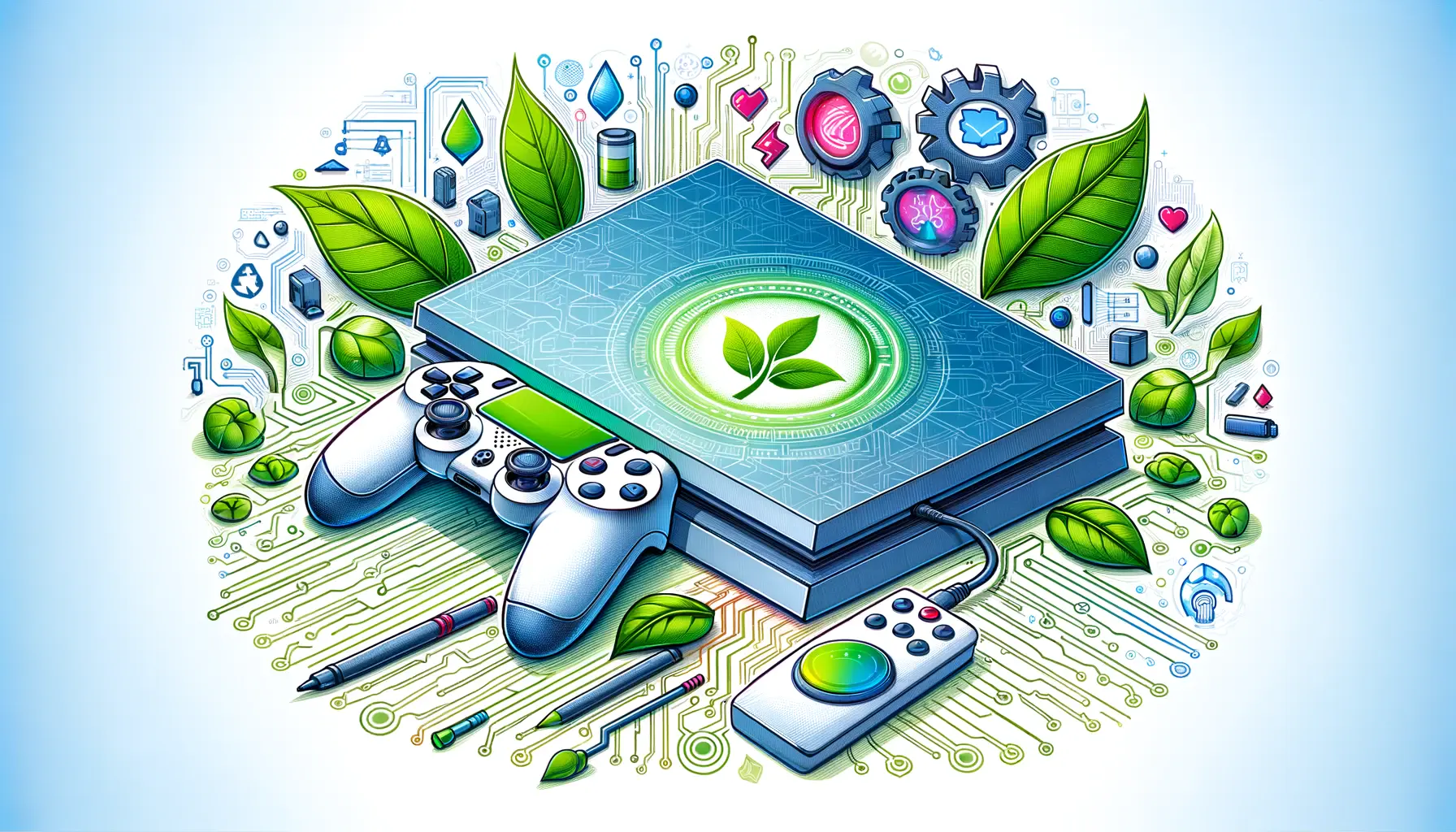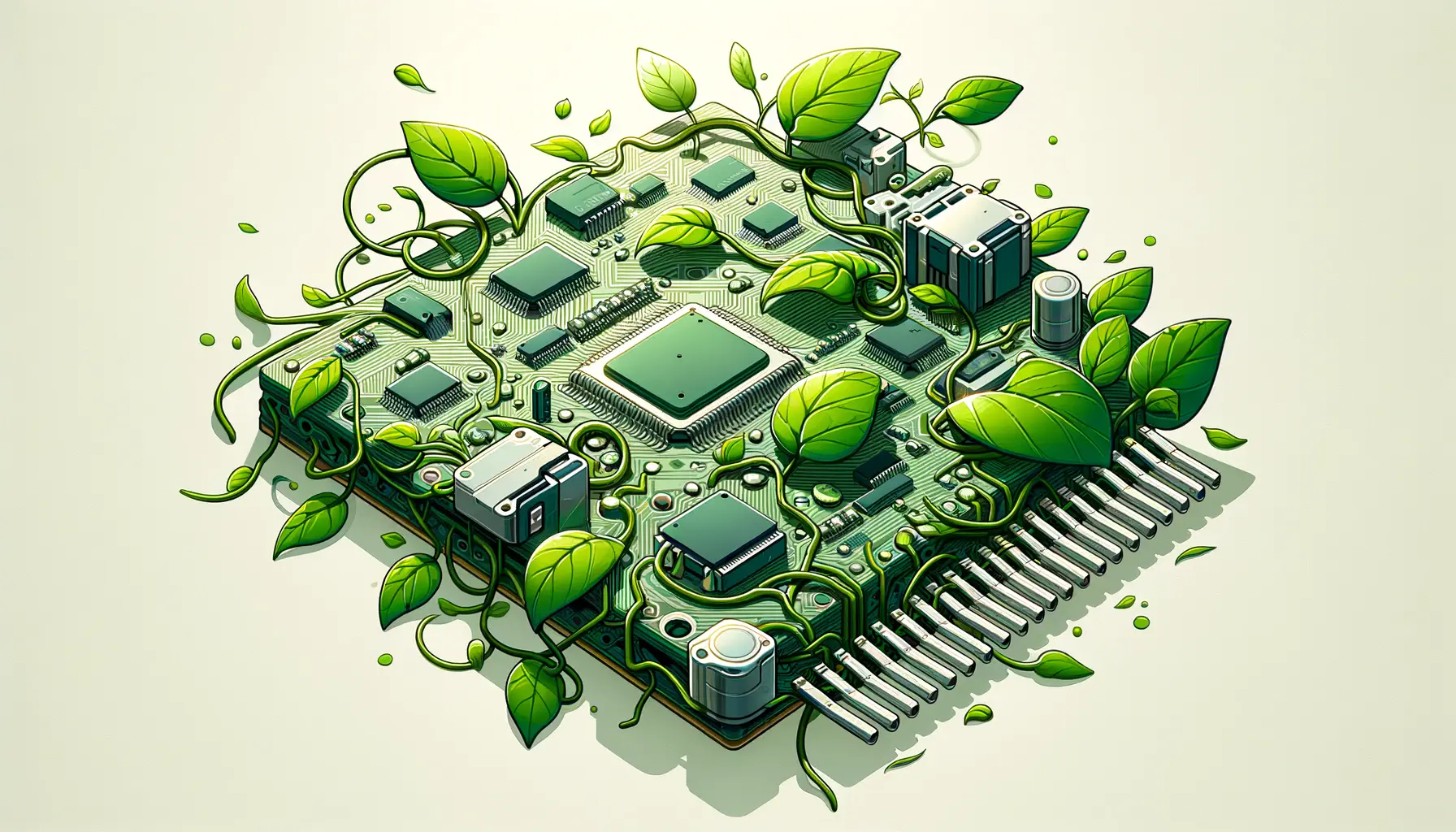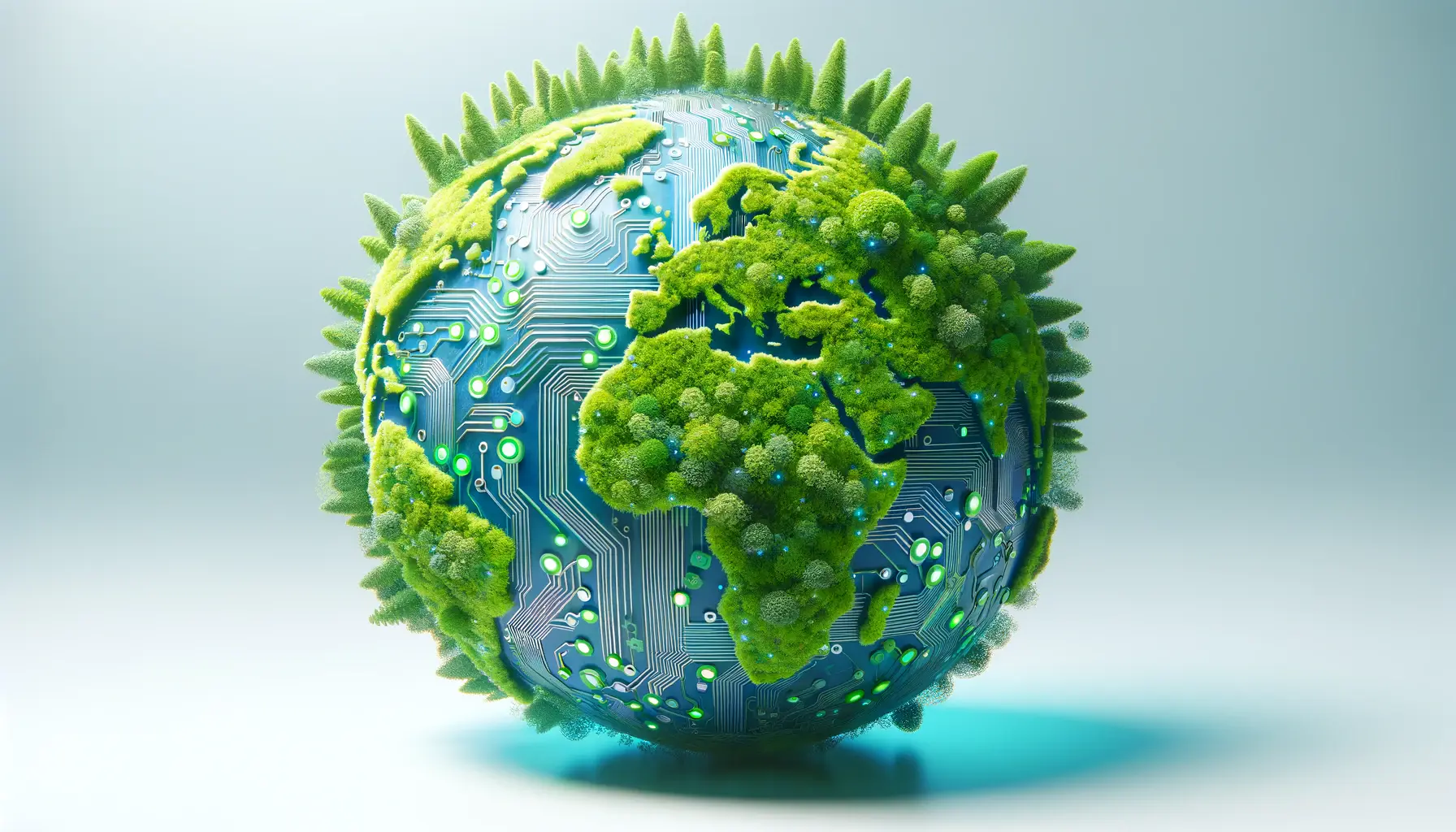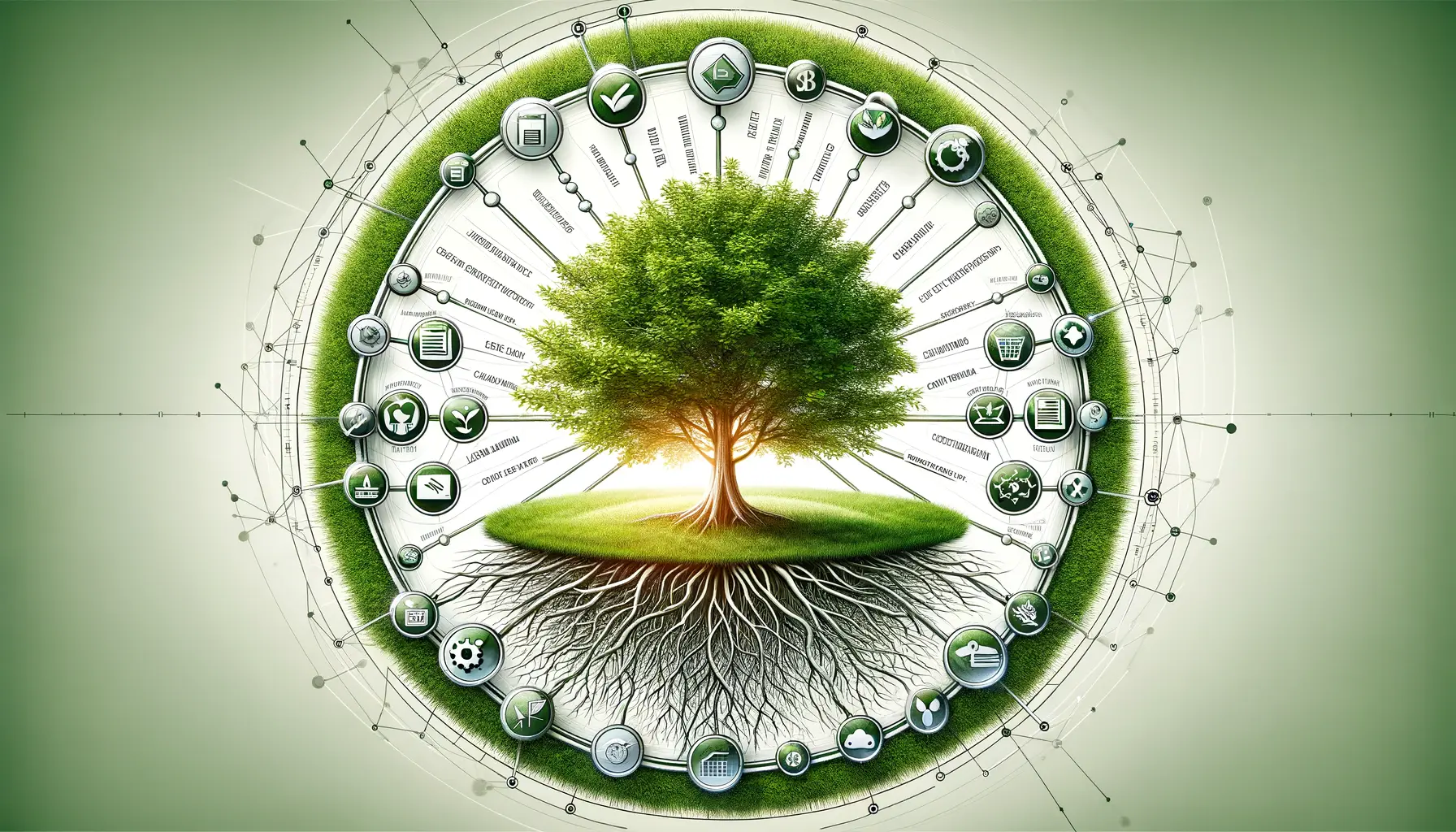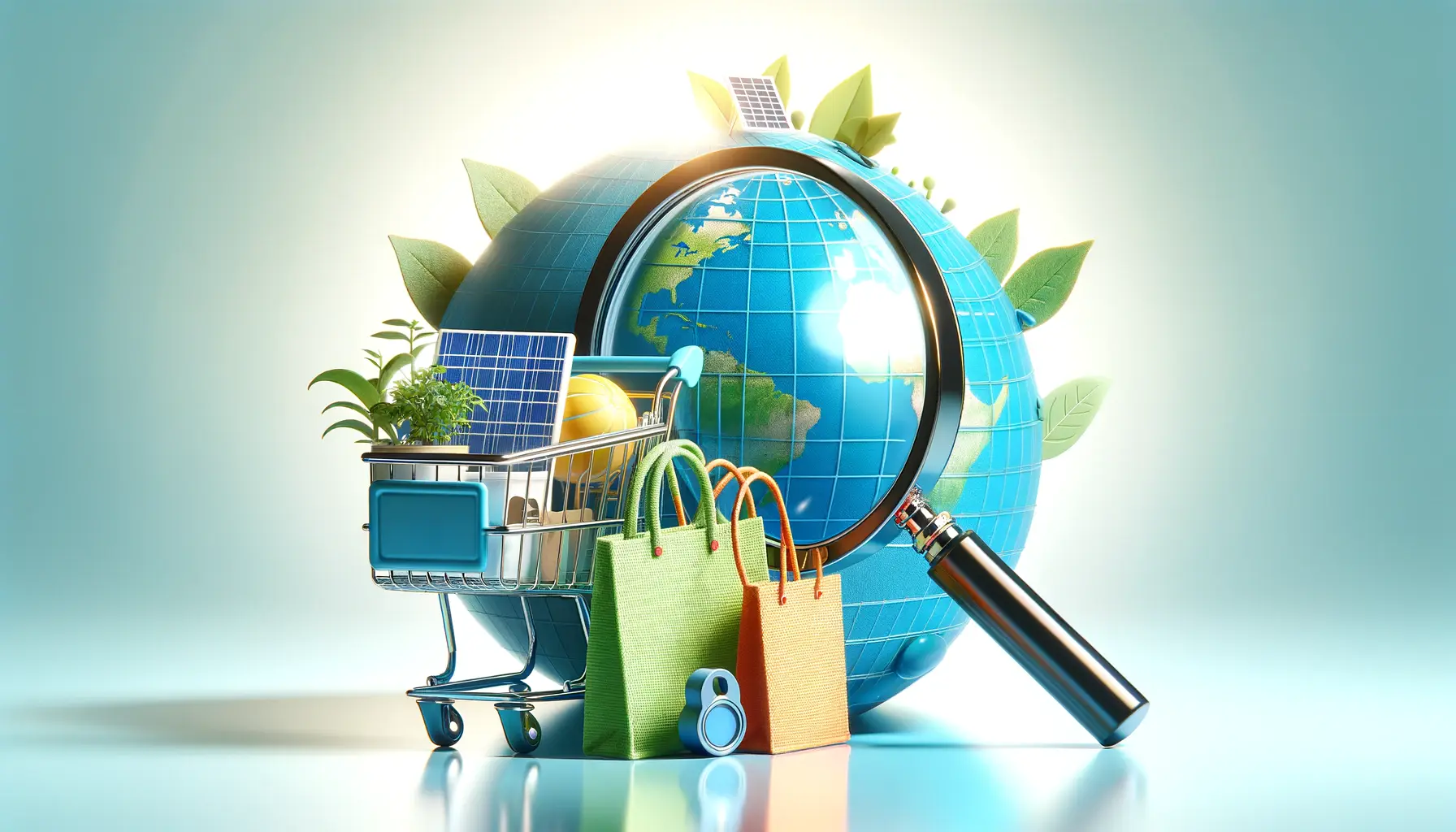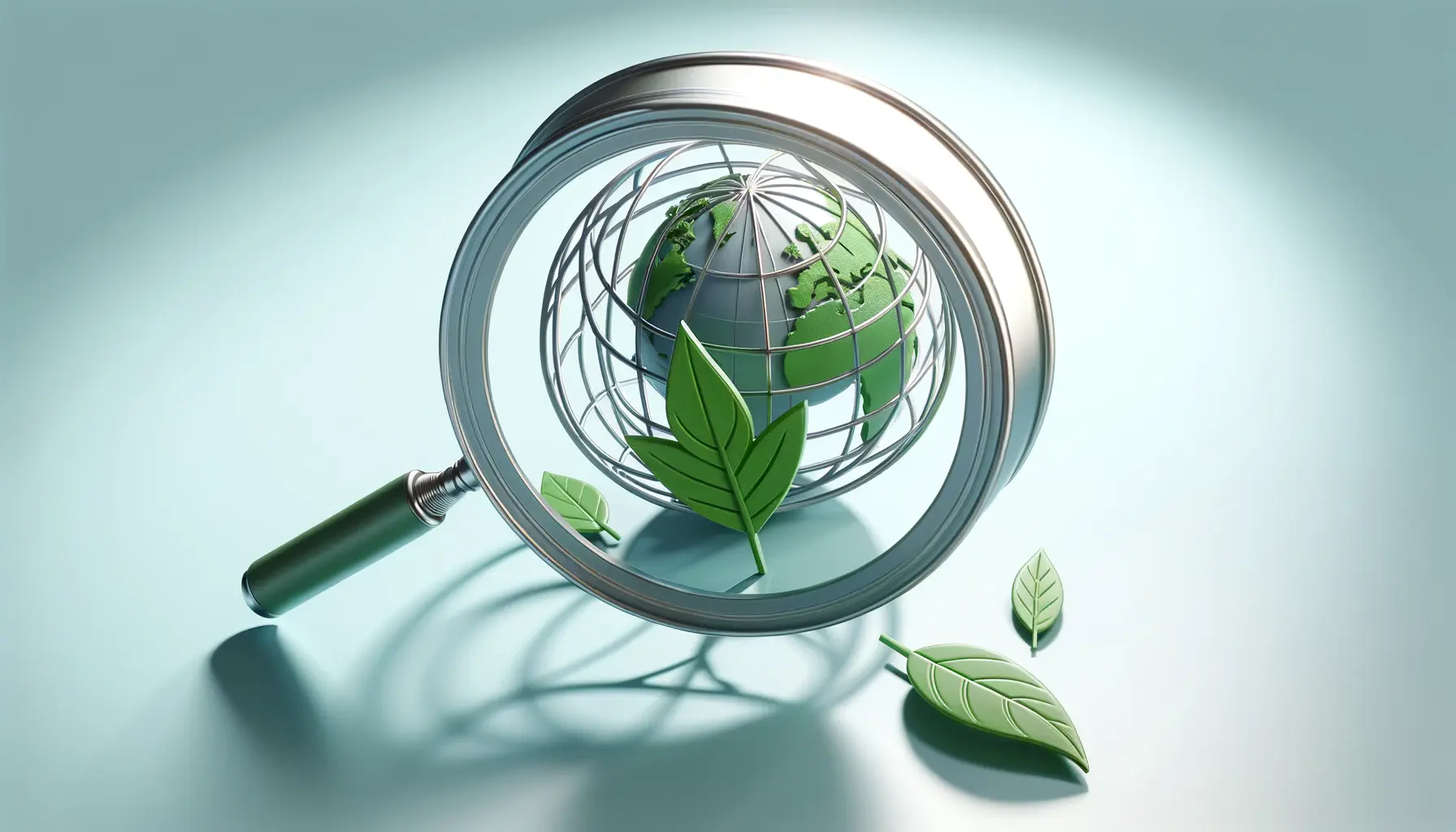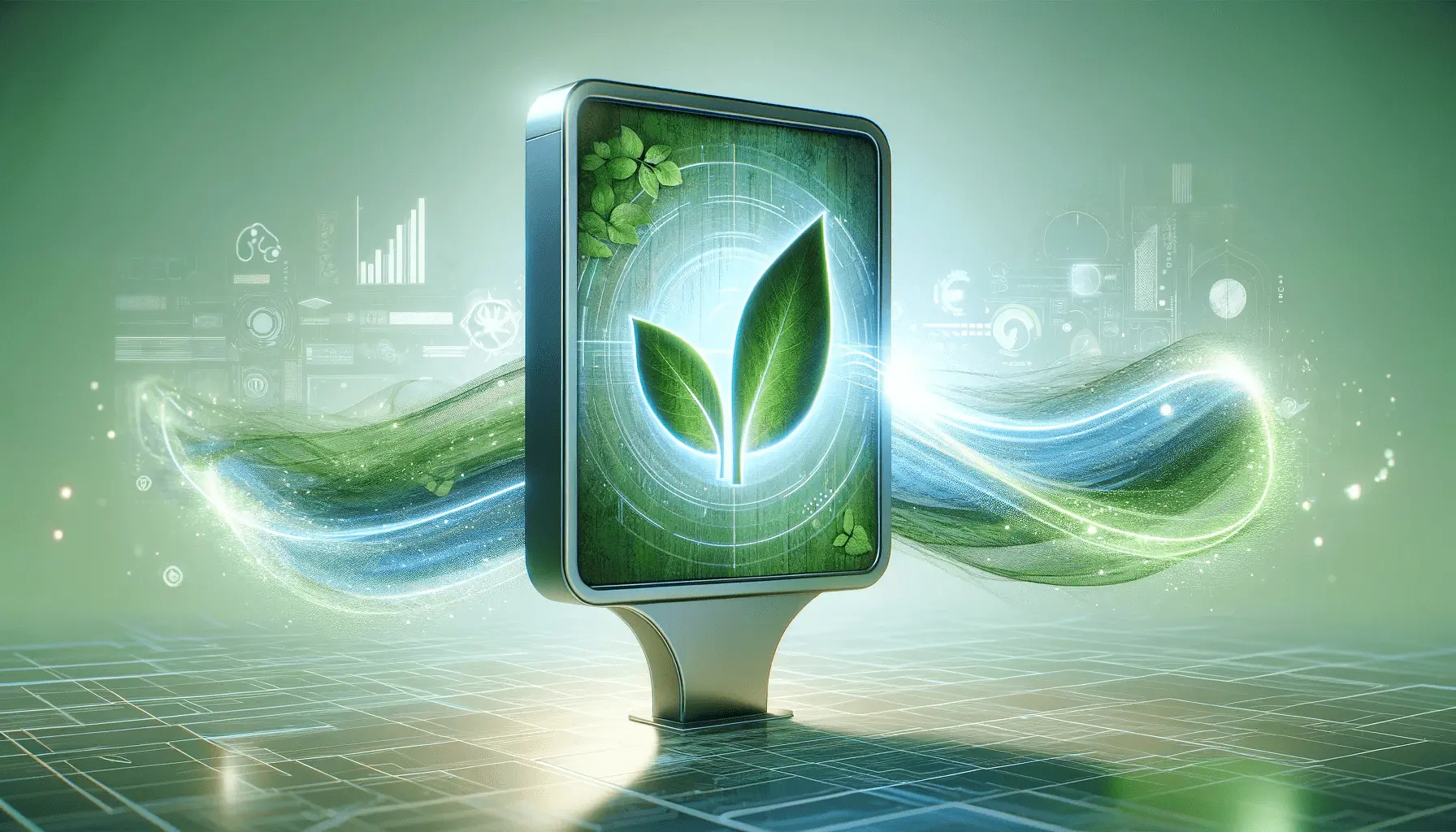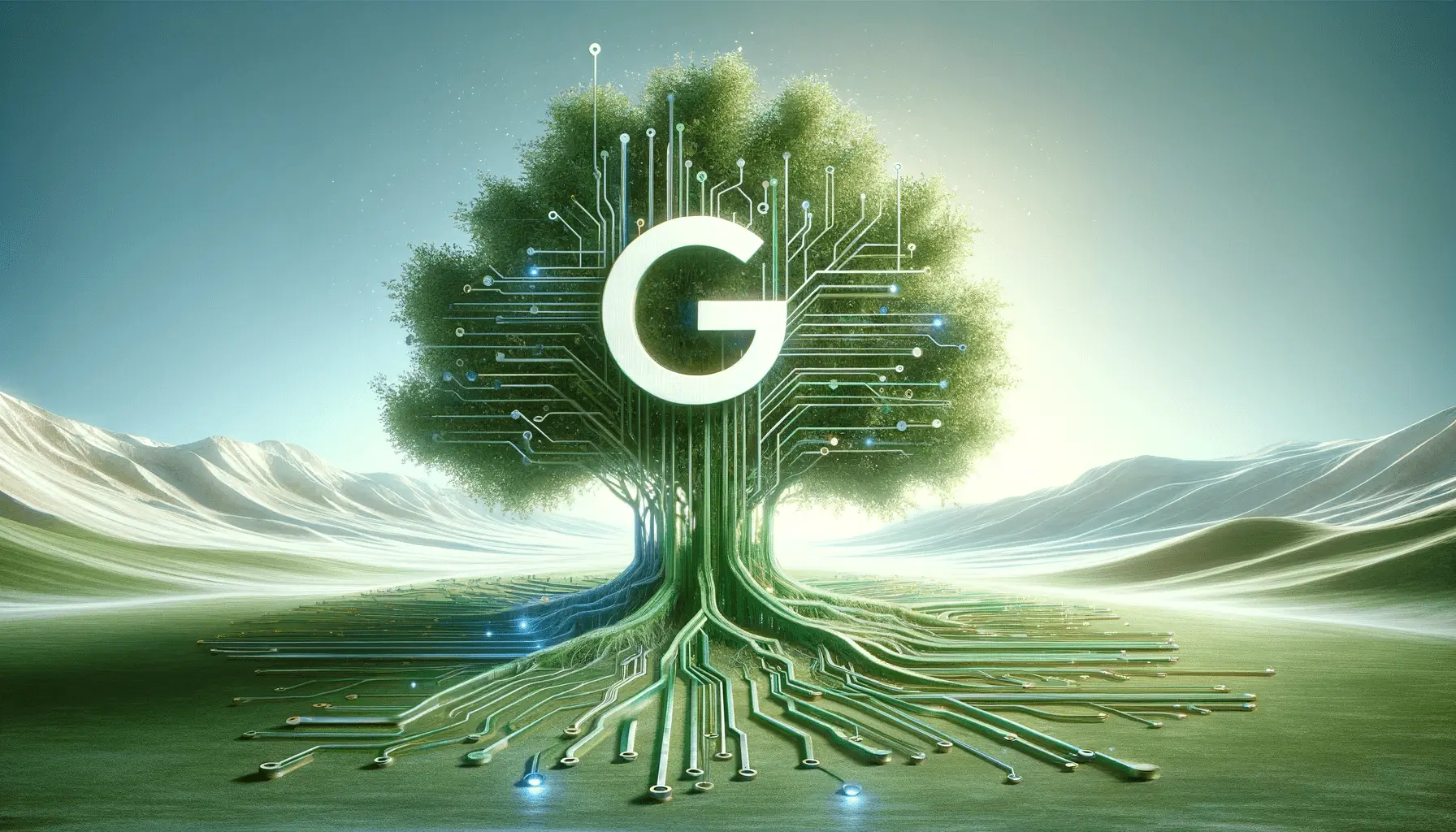The intersection of artificial intelligence (AI) and sustainability has become a focal point for the tech industry, with Grok AI standing at the forefront of this transformative movement.
As we delve into the realm of AI’s capabilities, it’s essential to understand how Grok AI not only advances technological innovation but also champions sustainability within the sector.
This exploration sheds light on the pivotal role AI plays in fostering a more sustainable and efficient technological ecosystem.
Grok AI, a term inspired by the concept of deeply understanding and intuitively grasping complex ideas, has become synonymous with cutting-edge AI solutions that prioritize environmental sustainability.
By leveraging advanced machine learning algorithms and data analytics, Grok AI aims to minimize the carbon footprint of tech operations, optimize energy consumption, and contribute to the global sustainability goals.
This initiative marks a significant step towards integrating eco-conscious practices within the tech industry, setting a new standard for future technological advancements.
- Understanding Grok AI’s Approach to Sustainability
- Impact of Grok AI on Renewable Energy Sources
- AI’s Role in Sustainable Agriculture Practices
- Reducing Industrial Waste Through AI Innovations
- AI in Enhancing Urban Sustainability
- Empowering Sustainable Consumer Choices with AI
- Grok AI’s Contribution to Green Technology Innovation
- Charting the Future with Grok AI: A Beacon of Sustainability in Tech
- Grok AI and Sustainability in Tech: FAQs
Understanding Grok AI’s Approach to Sustainability
The Core of Grok AI’s Sustainable Mission
At the heart of Grok AI’s mission lies a commitment to reducing the environmental impact of technology.
By harnessing the power of AI, Grok aims to streamline processes, enhance efficiency, and significantly lower energy usage across various sectors.
This approach not only contributes to the reduction of greenhouse gas emissions but also promotes a more sustainable use of resources, demonstrating how technology can be a force for good in addressing environmental challenges.
The company’s innovative use of AI in optimizing data center operations serves as a prime example of its sustainable mission.
Data centers, known for their high energy consumption, are critical to the functioning of the digital world.
Grok AI’s solutions enable these facilities to operate more efficiently, reducing energy waste and contributing to a decrease in the overall carbon footprint of the tech industry.
Advancements in AI for Energy Efficiency
Grok AI’s advancements in AI technology have led to significant improvements in energy efficiency, particularly in how data is processed and managed.
By applying machine learning algorithms to predict and adjust energy usage in real-time, Grok AI ensures that operations are not only faster and more reliable but also more environmentally friendly.
This proactive approach to energy management showcases the potential of AI to revolutionize sustainability practices within the tech industry.
Moreover, Grok AI’s commitment to sustainability extends beyond its operational practices.
The company actively engages in research and development efforts aimed at creating AI models that are not only powerful and effective but also designed with energy efficiency in mind.
These efforts include the development of algorithms that require less computational power, thereby reducing the energy consumption associated with AI training and execution.
Grok AI’s approach to sustainability demonstrates the immense potential of artificial intelligence to drive positive environmental change, highlighting the importance of integrating eco-conscious practices in the development and application of AI technologies.
Impact of Grok AI on Renewable Energy Sources
The integration of Grok AI into the renewable energy sector marks a transformative shift towards more sustainable energy solutions.
By leveraging AI’s predictive analytics and machine learning capabilities, Grok AI significantly enhances the efficiency and reliability of renewable energy sources.
This section explores the pivotal role Grok AI plays in optimizing renewable energy production and consumption, contributing to a greener and more sustainable future.
Grok AI’s technology is adept at analyzing vast amounts of data from various renewable energy sources, such as solar panels and wind turbines.
This analysis enables the precise prediction of energy production, taking into account factors like weather conditions and seasonal variations.
Such predictive capabilities ensure that energy production aligns closely with demand, reducing waste and enhancing the overall efficiency of renewable energy systems.
Optimizing Solar Energy with AI
- Forecasting Solar Output: Grok AI’s algorithms can accurately predict solar power generation, allowing for better grid management and reduced reliance on non-renewable energy sources during peak times.
- Panel Efficiency: By monitoring the performance of solar panels in real-time, Grok AI identifies inefficiencies and suggests optimal maintenance schedules, ensuring maximum energy capture.
Enhancing Wind Energy Operations
- Wind Pattern Prediction: Grok AI analyzes historical and real-time data to predict wind patterns, enabling wind farms to adjust turbine angles for optimal energy production.
- Maintenance Predictions: It also forecasts potential maintenance issues before they arise, minimizing downtime and maintaining consistent energy output.
The application of Grok AI in the renewable energy sector not only bolsters the efficiency and reliability of these green energy sources but also supports the global transition towards a more sustainable energy landscape.
By minimizing energy waste and optimizing production, Grok AI plays a crucial role in reducing the environmental impact of energy consumption and production.
The integration of AI technologies like Grok AI into renewable energy sources underscores the potential of digital innovation to support sustainable development goals and combat climate change.
AI’s Role in Sustainable Agriculture Practices
The advent of Grok AI has ushered in a new era for the agricultural sector, emphasizing sustainability and efficiency.
Through the application of AI technologies, farmers and agricultural businesses are now able to optimize their practices, reduce waste, and significantly lower their environmental footprint.
This part of the article delves into how Grok AI is revolutionizing sustainable agriculture by enhancing crop yield, improving resource management, and minimizing the impact on the environment.
Grok AI leverages data analytics and machine learning to provide insights that were previously unattainable.
By analyzing data from various sources, including satellite imagery, soil sensors, and weather forecasts, Grok AI offers precise recommendations for planting, watering, and harvesting.
This data-driven approach ensures that resources are used efficiently, reducing the consumption of water, fertilizers, and pesticides, which in turn minimizes agricultural runoff and its harmful effects on ecosystems.
Enhanced Crop Yield Prediction
One of the standout features of Grok AI in agriculture is its ability to predict crop yields with remarkable accuracy.
This capability allows farmers to make informed decisions about their crops, leading to optimized harvest times and reduced food waste.
Furthermore, accurate yield predictions help stabilize food supply chains, contributing to food security and sustainability.
Smart Irrigation Systems
Water scarcity is a pressing issue facing the agricultural sector.
Grok AI addresses this challenge by powering smart irrigation systems that use data to water crops precisely when and where it’s needed.
This not only conserves water but also prevents overwatering, which can lead to soil degradation and increased emissions from water treatment processes.
Pest and Disease Detection
Early detection of pests and diseases is crucial for sustainable agriculture.
Grok AI’s image recognition capabilities enable the early identification of potential threats to crops, allowing for timely intervention with minimal use of pesticides.
This not only protects the crops but also reduces the amount of chemicals released into the environment, supporting biodiversity.
- Resource Optimization: Grok AI’s insights help in the judicious use of resources, ensuring that fertilizers and pesticides are applied in a targeted manner, thus reducing runoff and soil degradation.
- Sustainable Farming Practices: By facilitating precision agriculture, Grok AI encourages practices that maintain soil health, reduce water usage, and lower carbon emissions, paving the way for a more sustainable agricultural future.
The application of Grok AI in agriculture exemplifies the transformative potential of AI in promoting sustainable practices that benefit the environment, the economy, and society as a whole.
Reducing Industrial Waste Through AI Innovations
The industrial sector, known for its significant environmental footprint, is undergoing a green transformation with the help of Grok AI.
This innovative application of artificial intelligence is pivotal in reducing waste, enhancing recycling processes, and promoting the efficient use of resources.
By integrating Grok AI into their operations, industries can not only achieve greater efficiency but also contribute to environmental sustainability.
Grok AI’s machine learning algorithms analyze patterns and predict outcomes, enabling industries to optimize their production processes.
This optimization leads to a substantial reduction in waste generation, as AI can identify inefficiencies and suggest improvements.
Moreover, Grok AI facilitates the development of smart recycling systems that can sort and process waste more effectively, ensuring that materials are reused and recycled, thus minimizing the need for virgin resources.
Optimizing Manufacturing Processes
Manufacturing processes often involve complex operations where inefficiencies can lead to excessive waste.
Grok AI addresses this challenge by monitoring production lines in real-time, identifying bottlenecks, and suggesting adjustments to improve efficiency and reduce waste.
This not only conserves resources but also decreases the environmental impact associated with the disposal of industrial waste.
Enhancing Recycling Capabilities
The role of Grok AI in revolutionizing recycling processes cannot be overstated.
By employing AI-driven sorting technologies, recycling facilities can more accurately separate materials, increasing the purity of recyclables and the efficiency of recycling.
This advancement supports the circular economy, where the goal is to keep resources in use for as long as possible, extract the maximum value from them, and recover and regenerate products and materials at the end of their service life.
- Energy Efficiency: Grok AI’s predictive maintenance capabilities ensure that machinery operates optimally, reducing energy consumption and extending the lifespan of industrial equipment.
- Supply Chain Sustainability: By analyzing supply chain data, Grok AI helps companies identify and mitigate environmental risks, promoting more sustainable sourcing and distribution practices.
The impact of Grok AI on reducing industrial waste is a testament to the transformative power of technology in achieving sustainability goals.
As industries continue to embrace AI solutions like Grok AI, the path towards a more sustainable and environmentally friendly industrial sector becomes increasingly attainable.
Grok AI’s contribution to reducing industrial waste exemplifies the critical role of technology in advancing environmental sustainability and promoting a more responsible approach to industrial production.
AI in Enhancing Urban Sustainability
Urban centers, bustling with life and activity, are on the frontline of facing sustainability challenges.
Grok AI emerges as a beacon of innovation, offering smart solutions to enhance urban sustainability.
Through its advanced algorithms and data processing capabilities, Grok AI aids cities in becoming more efficient, livable, and environmentally friendly.
This part explores how Grok AI is instrumental in transforming urban environments through smart city initiatives, traffic management, and energy conservation efforts.
Smart city initiatives powered by Grok AI leverage the Internet of Things (IoT) and big data to optimize city services and infrastructure.
From intelligent lighting systems that adjust based on real-time data to waste management systems that predict and respond to collection needs, Grok AI is at the heart of creating more sustainable urban ecosystems.
These initiatives not only improve the quality of life for residents but also significantly reduce the environmental impact of cities.
Smart Traffic Management
One of the most pressing issues in urban areas is traffic congestion, which contributes to increased emissions and air pollution.
Grok AI addresses this challenge by analyzing traffic flow data in real-time, optimizing traffic light sequences, and suggesting the best routes for vehicles.
This reduces idle times, improves fuel efficiency, and decreases the overall carbon footprint of urban transportation.
Energy Conservation in Buildings
Buildings are among the largest consumers of energy in urban areas.
Grok AI’s application in building management systems enables the optimization of energy use, significantly reducing consumption.
By analyzing data from sensors and usage patterns, Grok AI can adjust heating, cooling, and lighting systems to ensure they operate only when needed, contributing to substantial energy savings and reducing greenhouse gas emissions.
- Waste Reduction: Grok AI-powered systems identify optimal waste collection routes and schedules, reducing fuel consumption and emissions associated with waste management.
- Water Management: AI algorithms predict water demand and detect leaks, ensuring efficient water use and conservation in urban settings.
The integration of Grok AI into urban planning and management marks a pivotal shift towards more sustainable and resilient cities.
By harnessing the power of AI, urban centers can address environmental challenges head-on, paving the way for a future where technology and sustainability go hand in hand.
Grok AI’s role in enhancing urban sustainability underscores the potential of artificial intelligence to transform cities into models of efficiency, resilience, and environmental stewardship.
Empowering Sustainable Consumer Choices with AI
In today’s eco-conscious world, consumers are increasingly seeking sustainable options for their purchases.
Grok AI plays a crucial role in empowering these consumer choices by providing insights and transparency into the sustainability practices of products and companies.
This part delves into how Grok AI aids consumers in making informed decisions that align with their values, ultimately driving a shift towards more sustainable consumption patterns.
Through the analysis of vast datasets, Grok AI can evaluate the environmental impact of products, from their carbon footprint to the sustainability of their supply chains.
This information, presented in an accessible format, allows consumers to understand the real cost of their purchases on the environment.
By leveraging Grok AI, businesses can also tailor their products to meet the growing demand for sustainability, fostering a market where eco-friendly choices become the norm.
Personalized Sustainability Recommendations
Grok AI’s ability to process and analyze individual consumer behavior and preferences leads to personalized recommendations for sustainable products and services.
Whether it’s suggesting eco-friendly alternatives or highlighting products with lower carbon footprints, Grok AI ensures that consumers have the information they need to make choices that are better for the planet.
Enhancing Transparency in Supply Chains
Transparency in supply chains is vital for understanding the sustainability of products.
Grok AI aids in tracing the origin of products, verifying sustainable practices, and ensuring that companies adhere to environmental standards.
This level of transparency empowers consumers to support businesses that are truly committed to sustainability, driving positive change across industries.
- Consumer Education: Grok AI plays a pivotal role in educating consumers about sustainability, offering insights into how everyday choices impact the environment.
- Market Shifts: By highlighting the demand for sustainable products, Grok AI encourages companies to adopt greener practices, leading to a shift in market offerings towards sustainability.
The empowerment of sustainable consumer choices through Grok AI is a testament to the power of technology in fostering a more sustainable future.
By providing the tools and information necessary to make informed decisions, Grok AI is helping to shape a world where consumption is aligned with environmental stewardship.
The influence of Grok AI on sustainable consumer choices highlights the critical role of artificial intelligence in promoting environmental awareness and driving the adoption of sustainable practices among consumers and businesses alike.
Grok AI’s Contribution to Green Technology Innovation
The realm of green technology is rapidly evolving, with Grok AI emerging as a key player in driving innovation and sustainability.
By applying artificial intelligence to the challenges of environmental conservation, Grok AI is not only advancing technological frontiers but also contributing to a more sustainable future.
This final part explores the various ways in which Grok AI is fostering innovation in green technology, from renewable energy solutions to sustainable urban development.
Grok AI’s algorithms and data analytics capabilities are instrumental in developing new green technologies that address critical environmental issues.
Whether it’s through optimizing renewable energy grids, reducing waste in industrial processes, or enhancing the efficiency of water usage, Grok AI’s contributions are paving the way for a cleaner, more sustainable world.
The technology’s ability to analyze complex datasets and predict outcomes is crucial in identifying and implementing the most effective solutions for environmental sustainability.
Accelerating Renewable Energy Adoption
One of the most significant impacts of Grok AI is in the renewable energy sector, where it accelerates the adoption of clean energy sources.
By improving the efficiency and reliability of renewable energy systems, Grok AI ensures that these sustainable alternatives are more accessible and appealing to both businesses and consumers.
This not only aids in reducing reliance on fossil fuels but also supports the global transition towards a low-carbon economy.
Driving Efficiency in Sustainable Urban Planning
In the context of urban development, Grok AI is revolutionizing the way cities are planned and managed.
From smart traffic systems that reduce congestion and emissions to AI-powered building management systems that conserve energy, Grok AI’s contributions to sustainable urban planning are manifold.
By making cities smarter and more efficient, Grok AI is helping to reduce the environmental impact of urbanization.
- Innovative Waste Management: Grok AI’s advancements in waste sorting and recycling technologies are leading to more sustainable waste management practices, reducing landfill use and promoting recycling.
- Water Conservation Technologies: Through the development of AI-driven irrigation and water management systems, Grok AI is contributing to the conservation of one of the planet’s most precious resources.
Grok AI’s contribution to green technology innovation is a beacon of hope in the fight against climate change and environmental degradation.
By harnessing the power of AI, Grok AI is not only advancing technological innovation but also ensuring that these advancements lead to a more sustainable and environmentally friendly future.
Grok AI stands at the intersection of technology and sustainability, demonstrating that innovation and environmental stewardship can go hand in hand to create a greener, more sustainable future.
Charting the Future with Grok AI: A Beacon of Sustainability in Tech
The journey through the realms of sustainability in tech, particularly through the lens of Grok AI, reveals a promising horizon where technology and environmental stewardship converge.
Grok AI stands as a testament to the potential of artificial intelligence to catalyze significant advancements in sustainability across various sectors.
From optimizing energy use in urban centers to revolutionizing agricultural practices, Grok AI is at the forefront of driving eco-friendly innovations.
This conclusion aims to encapsulate the essence of Grok AI’s contributions to sustainability, offering a glimpse into a future where technology serves as a pillar of environmental conservation.
The Multifaceted Impact of Grok AI on Sustainability
Grok AI’s influence spans across critical areas of sustainability, demonstrating the versatility and effectiveness of AI in tackling environmental challenges.
By integrating AI into renewable energy systems, Grok AI enhances the efficiency and adoption of clean energy, contributing to the reduction of carbon emissions.
In agriculture, Grok AI’s predictive analytics and data-driven insights lead to more sustainable farming practices, ensuring food security while minimizing environmental impact.
Moreover, Grok AI’s role in industrial waste reduction and smart urban planning highlights the technology’s capacity to transform traditional operations into models of efficiency and sustainability.
Empowering a Sustainable Future
The advancements brought about by Grok AI are not just technological feats; they represent a shift towards a more sustainable and conscious approach to development and consumption.
By empowering consumers with information on sustainable choices and driving businesses towards greener practices, Grok AI is fostering a culture of sustainability.
The technology’s impact on green technology innovation further underscores its role in shaping a future where environmental considerations are integral to technological development.
- Renewable Energy Optimization: Grok AI’s contributions to making renewable energy sources more efficient and reliable pave the way for a cleaner energy future.
- Sustainable Agriculture: Through enhanced yield predictions and resource management, Grok AI promotes agricultural practices that are in harmony with the environment.
- Waste Reduction: By improving recycling processes and reducing industrial waste, Grok AI supports the transition towards a circular economy.
- Smart Urban Development: Grok AI’s innovations in urban planning contribute to the creation of sustainable cities that offer a high quality of life while minimizing environmental footprints.
In conclusion, Grok AI embodies the synergy between technological innovation and sustainability, offering a blueprint for a future where technology not only advances human capabilities but also safeguards the planet.
As we move forward, the integration of AI like Grok AI in sustainability efforts will be crucial in addressing the complex environmental challenges of our time.
By charting a course towards sustainability in tech, Grok AI not only enhances our present but also secures our future, making it a beacon of hope and innovation in the quest for a sustainable world.
Grok AI and Sustainability in Tech: FAQs
Explore common inquiries about the intersection of Grok AI and sustainability within the tech industry.
Grok AI refers to advanced artificial intelligence systems designed to understand and analyze data deeply, optimizing tech sustainability.
By optimizing data processing and energy usage, Grok AI helps reduce the carbon footprint of tech operations, promoting environmental sustainability.
Yes, Grok AI analyzes and predicts energy needs, enhancing the efficiency and reliability of renewable energy sources.
Grok AI utilizes data to optimize farming practices, reducing waste and improving resource management for sustainability.
Yes, through predictive maintenance and process optimization, Grok AI significantly reduces waste in industrial settings.
Grok AI powers smart city solutions that enhance urban sustainability through efficient resource management and infrastructure optimization.
Yes, by providing insights into the sustainability of products and services, Grok AI empowers consumers to make eco-friendly decisions.
Grok AI drives green technology innovation by developing AI solutions that address environmental challenges and promote sustainability.
